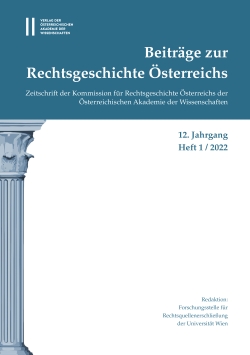
Beiträge zur Rechtsgeschichte Österreichs 12. Jahrgang Heft 1/2022, pp. 135-154, 2022/03/28
In 1921, the Austrian Federal Government tried to ban a theatre play written by Arthur Schnitzler that was beingstaged in Vienna. However, the mayor of Vienna refused to obey the instructions of the Federal Minister, claimingthat he was competent to allow or ban theatre plays. Because the competency rules of the new republican constitution(the ‘Bundes‐Verfassungsgesetz’, B‐VG) had not yet come into force at that time, a legal dispute arose betweenthe Federal Government and Vienna (as a state) over the question of who was competent in this matter, and whethera governor might review (and refuse to follow) instructions of the Federal Government based on grounds of legality.The dispute was ultimately decided by the Constitutional Court (the ‘Verfassungsgerichtshof’). It was the first suitagainst a governor (under Art. 142 B‐VG). In addition to the concrete legal situation, the case also represented thefirst chapter of the ‘Kulturkampf’ of that time, which, however, was fought out on the ground of constitutional law.In the article, both the public debates about the play at the time as well as the legal situation and the proceedings beforethe Constitutional Court are presented and analyzed by using primary sources and referring to jurisprudentialand political (social democratic, liberal, Christian social, and communist) opinions on the case.
Keywords: competencies;Constitutional Court (Austria);cultural wars;Federal Constitution (Austria);First Republic (Austria);Hans KELSEN;Arthur SCHNITZLER;suit against governor (Art. 142 B‐VG);theatre;Vienna